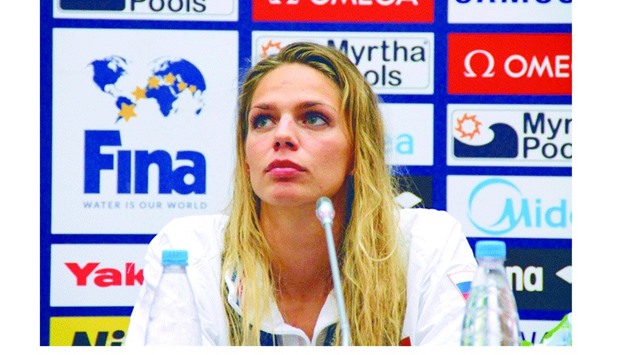The biggest loser of the Rio Olympics is probably Russia. But Russian President Vladimir Putin tried to build up the morale of the battered sports giant — going old school and sending a personalised telegram to each athlete who won a medal in Brazil.
Times are tough if you’re a Russian athlete. The spectators in Rio booed most of the Russians competing and many Russians were even chastised by opposing athletes.
The Russian team was decimated with just 285 athletes in Rio — down from the 436 at London 2012 — after many were banned due to suspected systematic state doping.
And the once mighty Russians will likely finish fourth in the medals table behind United States, Britain and China. Entering the final day of action in Rio, Russia had picked up 17 golds, 17 silvers and 19 bronze.
But their 53 total medals were a far cry from the 82 medals they picked up at London 2012 — including 24 golds. That 82 was the number the medals won in London, not taking into account medals that were since taken away for doping or added due to doping cases from other athletes or teams.
The fronts between Russia and the Olympics have hardened. And International Olympic Committee president Thomas Bach really could not do too much to change that.
Bach could have made it even worse if he had actually called for a complete ban of the Russian team for Rio. That is exactly the case for the upcoming Paralympics as the International Olympic Committee IPC has banned all Russians from competing in the Games, which run in Rio from September 7-18. The Russians have appealed the IPC decision and the Court of Arbitration for Sport CAS is expected to make a ruling today.
It is not just the world ruling bodies who are pushing against the Russians but some countries as well — including Germany.
The German anti-doping agency NADA has demanded further investigations and more penalties for Russia.
“The Winter Games will take place in about one-and-a-half years and you must say here as well that the Russian state has thwarted and cheated the anti-doping system,” NADA chairwoman Andrea Gotzmann said, calling for a ban of Russians at the 2018 Winter Olympics.
In Moscow, meanwhile, Russian officials feel insulted and disgusted about such claims. Sports Minister Vitaly Mutko has threatened to stop Russia’s payments to the World Anti-Doping Agency (WADA).
Russia’s two-time Olympic pole vault champion and world record holder Yelena Isinbayeva said she will tackle the issue when she joins the IOC’s athletes commission.
“Russia was treated unfairly and I will do everything to stop this kind of situation in the future,” Isinbayeva said. “Something like this will not happen with me and cannot be repeated.”
Isinbayeva is considering running for the presidency of the Russian athletics federation (ARAF) with the aim of bringing back Russian athletes to the sport’s global community.
The Russians seem a ways from being accepted, especially as more and more athletes are being stripped of their past Olympic medals due to positive doping tests. Russian shot put athlete Evgeniia Kolodko was the latest to lose her medal as re-tests of her doping samples found a steroid and growth hormone and she lost her London 2012 silver medal.
The Russians will not be stripped of any athletics medals from Rio 2016 because the team did not win any since it was entirely suspended from Brazil — save for the US-based long jumper Darya Klishina.
Swimmer Yuliya Efimova, who recently returned to the sport after being suspended for doping, felt the outrage of others in Rio, where she was whistled and jeered on the medals podium as she won two silvers at the Games.
“They (some athletes) have no idea what it’s like if they swapped places with me. It’s very upsetting when politics enters into sport,” said the 100m and 200m women’s breaststroke silver medallist Efimova.
There is a bit of relief for Russian sports officials as they prepare for the next major sports projects back home — the Confederations Cup next summer and the 2018 World Cup.
Football’s ruling body FIFA has not been as tenacious as the IOC in regards to doping. And the most recent performances of Russia’s footballers have not exactly raised any suspicions of doping.

Russian swimmer Yuliya Efimova, who recently returned to the sport after being suspended for doping, felt the outrage in Rio, where she was jeered on the medals podium as she won two silvers.
